|
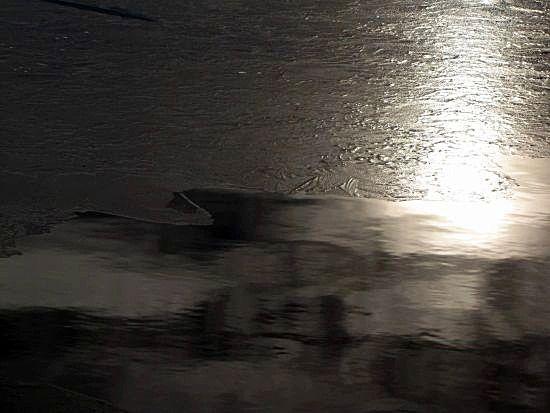
first ice
Mississippi River
no, not that one
photo - mw
_______________________
I was the shadow of the waxwing slain
By the false azure in the windowpane;
I was the smudge of ashen fluff -- and I
Lived on, flew on, in the reflected sky.
- Nabokov, Pale Fire
.....................................................
The waxwing slain
Seamus Sweeney
a tale of literary envy
nthposition april 04
(....)The history of literature - the movements filled with lofty ideas, the endless manifestos and counter-manifestos, the all-too-serious sense of mission - can be considered a history of envy. Or rather a series of envies - between supposed friends and fellow writers. That has been my experience both as literary failure and success.
Since some stage in mid-adolescence impossible to pin down, I have considered myself a writer. And not just a writer, but an artist. A literary artist. The person who awoke my never-sleeping envy threatened that sense of self; because, at an age when I was still constructing elaborate fantasies of my glorious literary career, he had not only written but published three novels. And he stole my name.
The literary fantasist constructs an entire career in their reveries. The ecstatically received debut, a mould-breaking work that sets the tone for new fiction. Interviewers cast themselves worshipfully at the feet of my wit. Casual remarks that achieve the status of aphorisms. The speculation mounts for the second novel. Can he deliver? It hardly seems possible. That first novel, after all, was a stunning condensation of twenty-something years of experience and an eternity of timeless insight. And then the triumphant return, the sense of a richness and maturity that surpasses the previous work. The literary fantasist daydreams trenchant and controversial interviews that establish him at the peak of the profession....(more)
_______________________
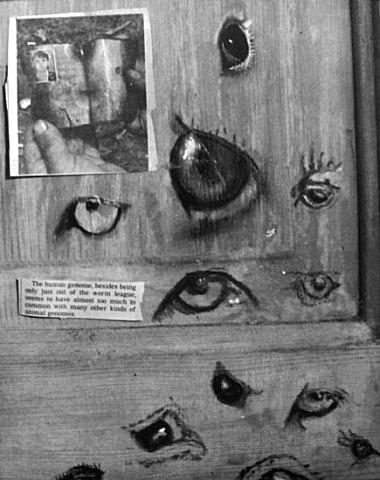
Beasts with News
Interior Studies
Claire Pentecost
at Higher Pictures
via
_______________________
A String of Words
Pravinsinh Chavda
Translated from GujaratiGujarati by Mira Desai
The first time that Kashyap went to the district library, a sense of discomfort and timidity overwhelmed him. An unease caused, perhaps, by the shut-in, musty smell, darkness and a strange fear that seemed to reach out from old, stuffy, book-lined cabinets….
It was raining—a fine genteel rain—and a single dim yellow bulb that danced on an extended cord cast strange patterns and shadows on the wall beyond.
This fear was a strange taste, but one that he knew well. This was a despair remembered from the fringes of his childhood—and once again he was a lad back in his village, trailing his friends when they’d visit their haunts by the giant boulders on the dry riverbed . . . His friends would race ahead and he’d be left behind, by turns afraid and awed at the majesty, the vastness, the visual treat . . . yes, this despair and awe—it was truly a remembered sense.
Behind dusty, glass-lined panes, large tomes seemed to be staring wide-eyed, calling out to him with promise. His feeble attempts to open one stubborn cabinet or another didn’t work, and he sought help from a quiet peon sitting in a corner.
He was dismissed with a gesture—speak to madam . . ....(more)
Tablet and Pen: Literary Landscapes from the Modern Middle East edited by Reza Aslan words without borders
_______________________
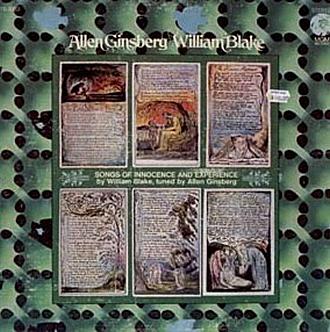
Songs of Innocence and Experience by William Blake,
tuned by Allen Ginsberg
Recorded New York, December 15, 1969
PennSound
_______________________
Still Down So Long: Appreciating Richard Farina
April Rose Schneider
LitKicks
An old adage says lightning never strikes in the same place twice. Don’t believe it. In the electric, eclectic atmosphere of post World War II academia, a series of refreshing lightning bolts sparked a new genre of American literature beginning in the early1950s. In the afterglow of the last Great American Renaissance [1950-1975] the fading light of those embers -- named Kerouac, Burroughs, Ginsberg, Pynchon, Brautigan, Thompson, and Kesey -- still shine over the ragged, rutted-out roads of the American Dream.
Yet, one brilliant star of this latest explosion of new American writers burned out in a brilliant flash, barely noticed by the rest of the illuminati. This real-gone star’s name was Richard Farina, and he was as Beat as Beat would ever be. Farina’s only claim to fame, Been Down so Long It Looks Like Up to Me was in many ways the 60’s complement to the rollicking, wide open classic On the Road. If On the Road was a careening, pedal-to-the-metal sort of hopped-up, amphetamine driven travelogue through a burned out Freudian landscape, Been Down So Long was a stroll through a Jungian meadow where Farina’s archetypes asked deep, pot-inspired philosophical questions of life and love and raged against the machine.
Young Gnossis Popadoppoulis, furry Pooh Bear, keeper of the flame, voyaged back from the asphalt seas of the great wasted land: oh highways U.S. 40 and unyielding 66, I am home ... See me loud with lies, big boots stomping, mind awash with schemes.
...(more)
_______________________

photo - mw
_______________________
Five Poems by Jesse Shipway
Mudlark
marxism
Jesse Shipway
mudlarks
(....)
Some stay angry though and
with their skills they
build village schools
or lobby from
the left. The really
super duper brainy ones
realise that God
has it all in
hand. That’s cause they
discover theodicy and
no longer smart
when textile mills leave South Carolina.
...(more)
Recession Poetics
Anastomoo: Volume 3
edited by Jesse Shipway
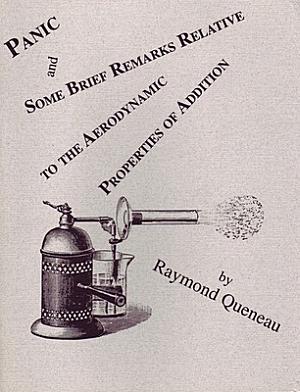
Numbers in Love
Weimar
Stories & remarksRaymond Queneau translated by Marc Lowenthal google books
_______________________
Samuel Beckett BBC Radio Plays
including Cyril Cusak reading Molloy, Malone Dies, The Unnamable
_______________________

Transit Zones To A Melancholic Feeling For Beauty
Inźs d'Orey
Bite! magazine
Documentary and Human Interest Photography Magazine
via
_______________________
As for the substance of the revelations, I don't know what the results will be. But in the world of diplomacy, embarrassment is meaningful and I'm not sure that it's a bad thing for all these people to be embarrassed right now. Puncturing a certain kind of self-importance --- especially national self-importance --- may be the most worthwhile thing they do. A little humility is long overdue.
- digby
_______________________
Borradores
Jen Paton
3quarksdaily
They say that journalists write the first draft of history. A Latin American term for a first draft is a “borrador” or “eraser.” But the line between journalism (or indeed history) and fiction is easily smudged. Statements like those above from WikiLeaks and Assange assume primary sources, like the ones WikiLeaks provide give us the whole truth, or at least possess a unique “truthiness.” But documents like those released in the war diaries and Cablegate do not represent “the truth,” but rather are simply another vantage point from which to try and glimpse it. How much of a first draft do you ever end up keeping?
If we believe “truth” in history is just a sheaf of diplomatic cables, or Pentagon memos – that if we just read them all, then we’ll know – we deny the shifting, impossible project that history is.
That instability is something we are taught to deny. Just as journalists – and fifth graders – are taught the 5 W’s: Who, What, When, Why, and hoW, so too do historians write – and students of history are taught to write, if they are to be considered “serious” – with a sense of inevitability as their guide. This is true at least at the mainstream and lower branches of the academy (I include my own BA here), where it is not so au fait to imagine that, for example, the assassination of Archduke Ferdinand or the accession of Gorbachev were anything more than matches falling into existing stacks of kindling. Teleology is seductive.
(....)
What applies to telling the stories of the past applies to telling the stories of the present. Indeed, if we Americans can explain the disaster that is the last decade of war in the Middle East, blaming long term causes like sectarian violence, tribal patterns of life, or even medium term causes like 9/11 and the “war on terror,” a vast amount of responsibility is easily abnegated. How can any one individual, or any nation, be morally responsible for wrongs committed when the Angel of History is flying hard and fast? And so we – for the most part – keep our story simple: allowing a safe amount of critical reflection, to be sure, but never spending too long before the mirror.
(....)
We often don’t know how to take different routes through a story.
WikiLeaks, then, does not offer a rough draft of history. It will not “redefine” history any more than history should be redefined everyday, if it is practiced by thinking persons. What WikiLeaks offers, in a way historically unprecedented (and entirely contingent on technology), is the raw data of history. Causation and contingency are laid before us: a quarter-million instances of American foreign policy being enacted, or 391,832 points of data that future historians will use to write the history of this war in Iraq. And from that raw data: new approaches to the truth, yes, but not truth itself.
Wikileaks presents counterfactuals comprised of “facts”: new routes through – and deeper through - stories we thought we knew (if we were even paying attention.) The data they post remind us that the data we have are incomplete, and always will be incomplete, that every draft we write – from the first to the last, will be a borrador. History will not be, can never be redefined – because it should remain undefinitive and be constantly re-written....(more)
Tools to Access, Search, Browse, and Visualize U.S. Embassy Cables Being Released by WikileaksResourceBlog _______________________
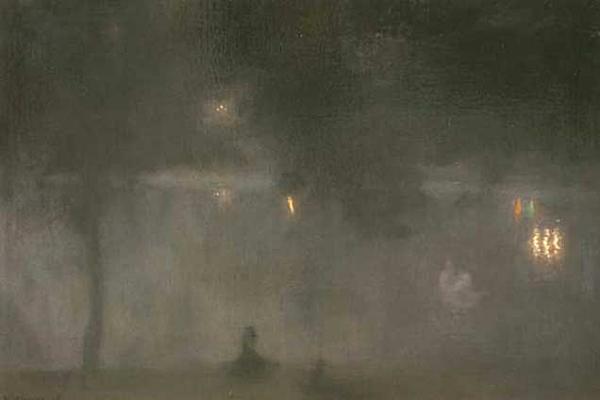
Józef Pankiewicz
b. Nov. 29, 1866
_______________________
Contain this!
Leaks, whistle-blowers and the networked news ecology
Felix Stalder
eurozine
Is it a coincidence that so far the vast majority of WikiLeaks' material has originated from within institutions in democratic systems?(....)
if a superficial morality is all that is left, then the encounter with the brutal day-to-day operations of the battle field is unmediated and corrosive. The moral rationale for going to war quickly dissolves under the actual experience of war and what's left is a cynical machinery run amok. It can no longer generate any lasting and positive identification from its protagonists. In some way, a similar lack of identification can be seen within corporations, as evidenced in the leaks from Swiss banks. With neoliberal ideology dominant, employees are told over and over not to expect anything from the company, that their job is continually in danger and that if they do not perform according to targets they can be replaced at a moment's notice. There is no greater narrative than the next quarter and generalised insecurity.
This emptying out of institutions takes place in the context of a general transformation of work away from strict hierarchies and the unquestioning execution of commands towards a more involved style of cognitive labour. Thus, people are told to engage more fully with their work, to become more creative, more self-reliant, more entrepreneurial. Simply following orders without investing one's creativity and personality is no longer enough. Thus, there is a second internal contradiction. People are asked to identify personally with organisations who can either no longer carry historical projects worthy of major sacrifices or expressly regard their employees as nothing but expendable, short-term resources. This, I think, creates the cognitive dissonance that justifies, perhaps even demands, the leaker to violate procedure and actively damage the organisation of which he, or she, has been at some point a well-acculturated member (this is the difference to the spy). This dissonance creates the motivational energy to move from the potential to the actual. ...(more)
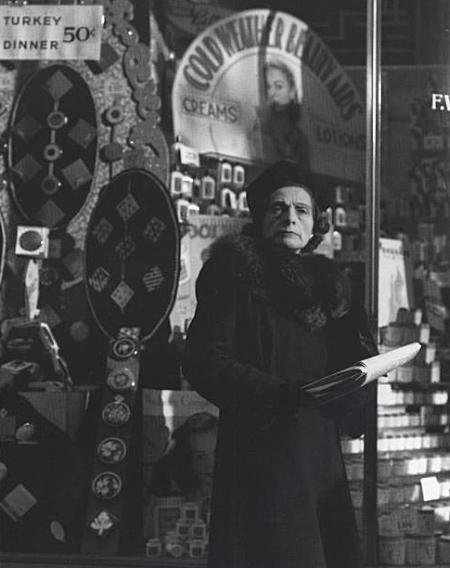
Uptown on Broadway
Louis Stettner
1946
_______________________
Thanksgiving in America
US corporations shatter profit records
How the American class struggle works
Lenin's Tomb
5 Ways to Deal With Your Conservative Relatives This Thanksgiving
Sarah Seltzer and Lauren Kelley
_______________________
Cartographies of Silence
Adrienne Rich
(....)
3.
The technology of silence
The rituals, etiquette
the blurring of terms
silence not absence
of words or music or even
raw sounds
Silence can be a plan
rigorously executed
the blueprint of a life
It is a presence
it has a history a form
Do not confuse it
with any kind of absence
(....)
6.
The scream
of an illegitimate voice
It has ceased to hear itself, therefore
it asks itself
How do I exist?
This was the silence I wanted to break in you
I had questions but you would not answer
I had answers but you could not use them
The is useless to you and perhaps to others
(....)
8.
No. Let me have this dust,
these pale clouds dourly lingering, these words
moving with ferocious accuracy
like the blind child's fingers
or the newborn infant's mouth
violent with hunger
No one can give me, I have long ago
taken this method
whether of bran pouring from the loose-woven sack
or of the bunsen-flame turned low and blue
If from time to time I envy
the pure annunciation to the eye
the visio beatifica
if from time to time I long to turn
like the Eleusinian hierophant
holding up a single ear of grain
for the return to the concrete and everlasting world
what in fact I keep choosing
are these words, these whispers, conversations
from which time after time the truth breaks moist and green.
...(more)
_______________________

the teller of tales Marija Leite
and scribe Oskar Loorits
Photo by: Lauri Kettunen
Photographs of Liv Villages
1902-1927
The National Board of Antiquities
Finland
_______________________
pearlant: the failure-of-memory palace
m john harrison
A swimming pool full of code. A vocabulary of interestingly combinable algorithms. A failure-of-memory palace bricolaged together around writers I remember from being very young. The usual combination of playground and fever-hospital. Bad dreams crawl over everything like the images on Emil Bonaventure’s sickroom walls. There is no shelter from the absurd....(more)
_______________________
The Heavenly Fire
spurious
(....)
Essex broke them. Essex rebuilt them. Essex broke their Britishness, their provincialness. Essex gave them philosophy. It gave them politics. It gave them friendship, and by way of philosophy, by way of politics. They were close to Europe, terribly close. Like Hoelderlin's Greece, Europe was the fire from heaven. Like Hoelderlin's Germany, Britain was to be set on fire by heaven.
Ah, what happened to them all, the postgraduates of Essex? What, to the last generation - the last generation of Essex postgraduates? Some got jobs. Some found work in obscure corners of Britain (where else could they find work but in obscure corners?). Some went abroad, back to Europe, back to the heavenly fire.
Some fell back into Britishness - fell into the drowning pool of Britishness. Some drowned, gasping for air, finding no air, in Britain. Hadn't they seen too much? Hadn't they learnt what they lacked? Hadn't they a sense now of great thought, of great politics? Hadn't their skies been full of light, of the heavenly fire?...(more)
_______________________

Diner
14th Street, New York
Louis Stettner
1952
_______________________
City Under Sun
Lyn Hejinian
conjunctions
Despite confusing display, unyielding surfaces, the
city is not
inhospitable to a competent culinary shopper, an
expert at
gathering groceries. She is impervious to ploys,
indifferent to
novelty. There is no longer anything new, nothing
new happens
anymore. This is the conclusion Nietzsche reaches
with his
aperēu “God is dead.” As Walter Benjamin points
out, since then
humans have had “to face with heroic composure”
the eternal
return of the same. But even that heroism is lost to
us now.
Everything is new and that is what’s no longer
new—the lack
of novelty in the endless iterations of newness.
Nothing old
occurs anymore, either, except novelty’s old news.
History, in
that sense, is dead too. Everything is the same. It is
all hum and
grid. Rhubarb is rote; edamame has entered
Standard English.
...(more)
_______________________
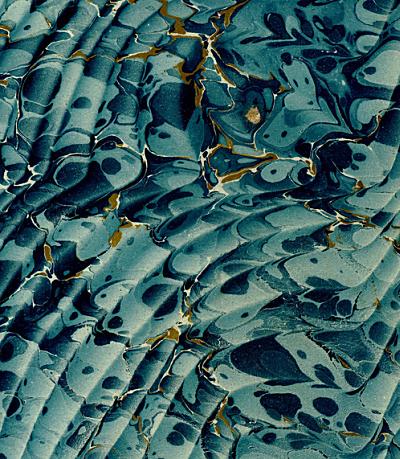
Vintage 19th c. marbled paper
Marbled Paper Designs
BibliOdyssey
_______________________
Things we do to innocent people to prevent terrorism
Rafe Colburn
rc3
_______________________
The Pirate Bay
Countervailing power and the problem of state organized crime
Leon Tan
ctheory
(....)
The theoretical framework provided in the preceding pages offers a way to think about the political-economy of networked media in terms of the specific claims and contention of different assemblages as they relate to the concentration and diffusion of power in online world-economies.
If world-economies are genuinely interested in raising social welfare while stimulating the creation of new works, it would seem useful to deal with the problem of state organized crime and its associated de-democratization, and to take up the creative task of jurisprudence by inventing explicit specifications for personal and fair use rights and interpreting the provisions of international frameworks to clearly establish the scope of human rights in relation to national and international intellectual property laws. In the case of file-sharing, this would entail creating jurisprudences where it will no longer be possible for copyright holders to invade the privacy of individuals or constrain their capacities to participate fully in cultural life. ... It would also be useful for world-economies to consider case by case, the judicious support of (or at least non-intervention in) the mechanism of countervailing power. Countervailing power may well turn out to be more effective than the favored route of anti-trust legislation in neutralizing anti-competitive and anti-social concentrations of market power. In the rapidly unfolding history of file-sharing, it has thus far proven both equal to the task, and productive of market changes and expansions. ...(more)
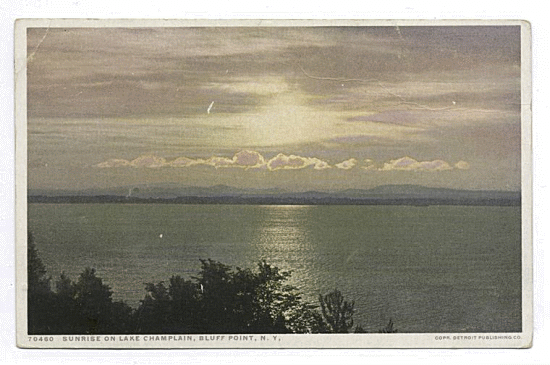
Sunrise on Lake Champlain
Detroit Publishing Company Postcards
from the Leonard Lauder Postcard Collection
NYPL Digital Gallery
_______________________
By the Waters of Babylon
Rosmarie Waldrop
sibila
1
We take language for granted, as we do sitting and weeping. Unfamiliar speech we take for inarticulate gurgling. Filtered through sandbags.
A searchlight beam makes a statement.
The order of the world is so foreign to our subjective interests that we cannot imagine what it is like, says William James. We have to break it. Into histories, art, sciences, or just plain rubble. Then we feel at home.
I could list the parts of the body as in a blason. And how they can get hurt.
2
Unless we recognize a language we do not recognize a man. We wrap entire villages in barbed wire.
My father used to close his eyes and remain as motionless as possible to let his body-image dissolve.
I repeat myself often.
Time has no power over the Id. But heat passes from a warm body to a cold body and not in the reverse direction.
...(more)
_______________________
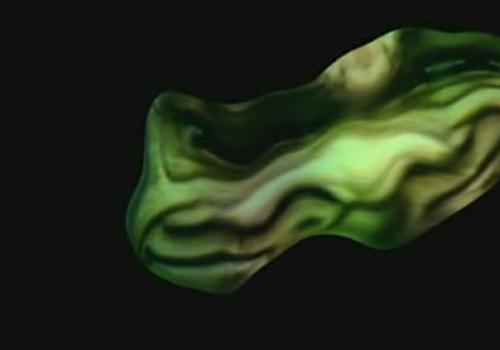
The Eye Is Never Filled
Ken Nordine
(2005)
word jazz poems set to video
ubu
How's it done?
Begin with a love for the spoken word, a love for the serious sad silly glad language of our lives. And a belief that what you think and feel about what's going on is important and should be heard, which may well be a stumbling block for some. The innately humble. Along with the spoken words, you'll need what's called "head music" to back you up, done without any charts ... the free and easy empathy of a small group of jazz musicians who listen carefully to where you're coming from ... to aid and abet the meaning on the fly. There's a list on the DVD of the great players who did their best to back me up. You need "head music" for where your head is. Also you need a dedicated engineer with caring ears who can record and mix whatever mood you and the music may happen to be in. Mixing is very important. Good sound tracks should be as transparent as you'd like your soul to be. you also need a fast computer (for me, Apple is the most intuitive) with plenty of gigabytes for storage for all the images. Rendering hi-res images takes a lot of time and plenty of space. You'll also need imaging manipulating software: Photoshop along with ArtMatic and Vtrack and Voyager. uisoftware.com is an artistic Godsend that requires deep study and long patience. Fun to wrestle with.
So now you know. Old blabby me has spilled the how-to-do-it beans. Now you know all my secrets. go and do likewise. Do your own DVD. When it's finished, if you're anyting like me ... you will want to do another and another and another etc. vanitas, vanitatum et umnia vanitas.
That eye ain't never gonna be ever filled.
Ken Nordine
Ken Nordine's Word Jazz Web Site and Podcast

Video: Ken Nordine turns 90,
gives us a trippy tour of his house/studio
Apr. 29, 2010
One of the joys of working for Chicago Public Radio is to come in contact with some amazing broadcast legends. Ken Nordine definitely fits in that category. When I was a radio student at Columbia College, my production teachers would play Nordine's Word Jazz to give us inspiration for what was possible in audio. Nordine is the host of Word Jazz, the trippy audio-art program that airs Sundays at midnight on WBEZ. This month, he turned 90. Yep, that's right. He's 90 years old and he's still producing new Word Jazz episodes from his studios on Chicago's far North side. We were lucky enough to be invited up to his house, where the third floor/attic serves as his long-time studio. Here's the video piece we put together, featuring Steve Edwards on lead-interview.
- Justin Kaufmann
_______________________
Taibbi: the Tea Party Moron Complex
If you want to understand why America is such a paradise for high-class thieves, just look at the way a manufactured movement like the Tea Party corrals and neutralizes public anger that otherwise should be sending pitchforks in the direction of downtown Manhattan.
(....)
Our world isn’t about ideology anymore. It’s about complexity. We live in a complex bureaucratic state with complex laws and complex business practices, and the few organizations with the corporate will power to master these complexities will inevitably own the political power. On the other hand, movements like the Tea Party more than anything else reflect a widespread longing for simpler times and simple solutions -- just throw the U.S. Constitution at the whole mess and everything will be jake. For immigration, build a big fence. Abolish the Federal Reserve, the Department of Commerce, the Department of Education. At times the overt longing for simple answers that you get from Tea Party leaders is so earnest and touching, it almost makes you forget how insane most of them are....(more)
_______________________
No critique of any kind of reason will waken man from his “dogmatic sleep.” It may shake the unconscious certitudes which abound in his philosophy and substitute more flexible propositions for his rigid affirmations, but how, by a rational procedure, will it manage to shake the creature, huddled over its own dogmas, without bringing about its very death?
Emil Cioran, A Short History of Decay
pulled from a longer selection at Rogue Embryo
_______________________

SIBIR, 2009
Debby Huysmans
Joerg Colberg
_______________________
Melancholy in the Mirror
Three Readings of Baudelaire
Jean Starobinski
translated by Charlotte Mandell
hyperion
I
“Melancholy, at Noon”
Melancholy was an intimate companion of Baudelaire. In Les Fleurs du Mal, the introductory poem “To the Reader” clothes the grotesque and repellent figure of Ennui in majesty. The “Epigraph for a Condemned Book” that comes later is even more explicit:
Peaceful, bucolic reader,
Sober, simple, well-meaning man,
Throw away this saturnine book,
Orgiastic and melancholic.
Surely the very word ‘melancholy,’ and its direct descendant, the adjective melancholic, had become hard to utter in poetry: these words were suffering from overuse. They had been linked too often with solitary contemplation, in landscapes of cliffs or ruins. Commonplace sentimental remarks also relied on it. In “Fusées” (“Rockets”), after a list of affectionate “caprices of language,” we find: “Mon petit āne mélancolique” (“My little melancholy donkey”). In his verse, Baudelaire uses this dangerous word only rarely, and then judiciously. (This is not true in his prose, his critical essays, or his correspondence, where the same precautions are not required.)
Expressing melancholy without saying the word ‘melancholy’ too often requires you to fall back on synonyms, equivalents, metaphors. It poses a challenge to the poetic task. Adjustments must be made, in the lexical domain first of all. The word ‘spleen,’ from English, which had taken it from Greek (splźn, seat of black bile, hence of melancholy), designates the same malady, but by a detour that turns it into a sort of intruder, both elegant and irritating. French vocabularies had welcomed it even before the words dandy and dandysme (almost its accomplices, as we shall see) were introduced. The place of spleen, in the Fleurs, is dominant: it figures not in the poems themselves, but in the titles. The poems entitled “Spleen” (“Spleen et Idéal” in the first section), without uttering the word ‘melancholy,’ can be regarded as so many symbols or periphrastic blazons of melancholy. They express it in other words, in other images: they allegorize it—and it is hard to decide if allegory is the body or the shadow of Baudelairean melancholy. I will not be able to avoid speaking about this again in the course of this study. ...(more)
_______________________

Evening
1905-1915
Charles H. Davis
Detroit Publishing Company postcards
_______________________
from Kopenhaga
Grzegorz Wróblewski
translated from the Polish by Piotr Gwiazda
agni
(....)
Something strange and indecent about people who suddenly dispose of their
libraries. Recently, the wealthy R. arrived with a carton of books; he is moving
and in his new apartment (probably bigger than the previous one) there won’t be
enough space for them. This is how Formy by Tadeusz Róz.ewicz (Czytelnik,
Warsaw, 1958, 1st ed.) ended up in Christianshavn. Last sentence of the volume:
“Through all this turmoil we walk toward silence, toward explanation.”
...(more)
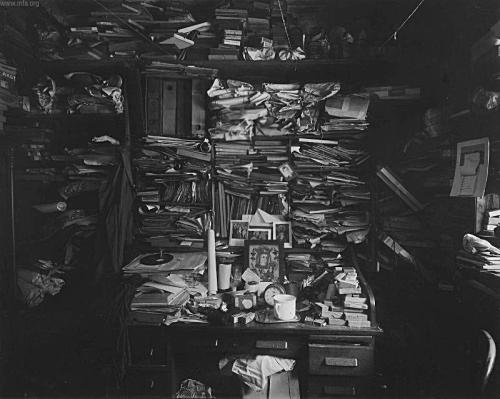
labyrinth in my atelier
1960
Josef Sudek
1896 - 1976
1 2 3
_______________________
Evocative Objects
Things We Think With
Edited by Sherry Turkle
MIT Press
Introduction: The Things That Matter [pdf]
Sherry Turkle
(....)The rules were that I was allowed to look at anything in the closet, but I was always to put it back. The closet seemed to me of infinite dimensions, infinite depth.
Each object I found in the closet—every keychain, postcard, unpaired earring, high school textbook with its marginalia, some of it my mother’s, some of it my aunt’s—signaled a new understanding of who they were and what they might be interested in; every photograph of my mother on a date or at a dance became a clue to my possible identity. My biological father had been an absent figure since I was two. My mother had left him. We never spoke about him. It was taboo to raise the sub- ject. I did not feel permitted to even think about the subject.
(....)
I was distressed at the loss of the objects but somewhat comforted to realize that I now had a set of ideas for thinking about them. In Paris, I read the work of the anthropologist Claude Lévi-Strauss, who described bricolage as a way of combining and recombining a closed set of materials to come up with new ideas. Material things, for Lévi-Strauss, were goods-to-think-with and, following the pun in French, they were good-to-think-with as well. While in France, I realized that during my many hours with the memory closet I had done more than daydream ideas into old photographs. When I first met the notion of bricolage, it already seemed like a childhood friend.
(....)
via Thivai Abhor_______________________
Perspectives
International Postgraduate Journal of Philosophy
one is born with forces that one did not contrive. one lives by giving
form to these forces. The forms one gets from the others.
-
Alphonso Lingis, "We Mortals"
Bodies in Transit: The Plastic Subject of Alphonso Lingis [pdf]
Tom Sparr
Language acquisition, motherhood, and the perpetual preservation of ethical dialogue: [pdf] a model for ethical discourse focusing on Julia Kristeva Jennifer Lemma Perspectives
Infinitely Demanding Anarchism: [pdf]
An Interview with Simon Critchley
SC: the interstices have to be created. I would begin from the idea that at the present moment in history the state saturates more and more areas of society. we live in societies of surveillance and control, to an extent that would have been unimaginable a hundred years ago. It truly is a dystopian vision. To that extent, there is no space in the state. That’s how the state works, it is by saturating the visibility of what takes place in the social terrain, controlling it. the political system, the political machine, is what gives the impression of change within that state form. forms of genuine resistance have to go about creating new spaces of visibility. I take the idea of ‘interstice’ from epicurus who says that the gods live in the interstices of space. there was an idea of god, a strange idea of god, that god was almost non-existent but existing in the insterstices and these insterstices are ones which had to be articulated and created, they don’t exist, they’re not pre-given. .....................................................
A Kind of Faith
Dan Fox talks to Simon Critchley about community, collaboration, avant-garde rituals and being ‘religious without religion’
Frieze Magazine
_______________________

Imperial Veneer Works,
Macclesfield, Cheshire
1956
Eric de Maré
(1910-2002)
via Gary Sauer-Thompson
_______________________
The Library at Night
Alberto Manguel
ifile pdf - via aaaaarg
The starting point is a question.
Outside theology and fantastic literature, few can doubt that the main features of our universe are its dearth of meaning and lack of discernible purpose. And yet, with bewildering optimism, we continue to assemble whatever scraps of information we can gather in scrolls and books and computer chips, on shelf after library shelf, whether material, virtual or otherwise, pathetically intent on lending the world a semblance of sense and order, while knowing perfectly well that, however much we ’d like to believe the contrary, our pursuits are sadly doomed to failure.
Why then do we do it? Though I knew from the start that the question would most likely remain unanswered, the quest seemed worthwhile for its own sake. This book is the story of that quest.
_______________________
Why Deleuze (still) matters:
States, war-machines and radical transformation
Andrew Robinson
Ceasefire Magazine
In this article, I have chosen to concentrate on the conceptual pairing of states and war-machines as a way of understanding the differences between autonomous social networks and hierarchical, repressive formations. Deleuze and Guattari view the ‘state’ as a particular kind of institutional regime derived from a set of social relations which can be traced to a way of seeing focused on the construction of fixities and representation. There is thus a basic form of the state (a “state-form”) in spite of the differences among specific states. Since Deleuze and Guattari’s theory is primarily relational and processual, the state exists primarily as a process rather than a thing. The state-form is defined by the processes or practices of ‘overcoding’, ‘despotic signification’ and ‘machinic enslavement’. These attributes can be explained one at a time. The concept of despotic signification, derived from Lacan’s idea of the master-signifier, suggests that, in statist thought, a particular signifier is elevated to the status of standing for the whole, and the other of this signifier (remembering that signification is necessarily differential) is defined as radically excluded. ‘Overcoding’ consists in the imposition of the regime of meanings arising from this fixing of representations on the various processes through which social life and desire operate. In contrast to the deep penetration which occurs in capitalism, states often do this fairly lightly, but with brutality around the edges. Hence for instance, in historical despotic states, the inclusion of peripheral areas only required their symbolic subordination, and not any real impact on everyday life in these areas. Overcoding also, however, entails the destruction of anything which cannot be represented or encoded....(more)
Ceasefire Magazine
_______________________

Proun 19D
c. 1922
El Lissitzky
b. Nov. 23, 1890
_______________________
Broken Pencil: Issue 49
_______________________
Maurice Blanchot And The Literature Of Transgression
John Gregg
ifile pdf - via aaaaarg
_______________________
Proust and the Sense of Time
Julia Kristeva
translated by Stephen Bann
ifile pdf
_______________________
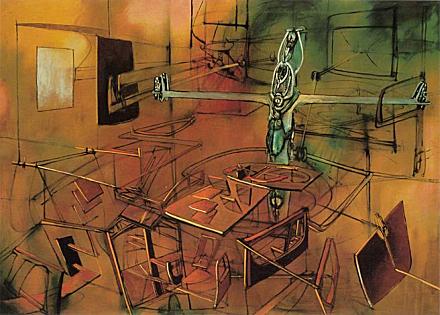
To Give Painless Light
(1955)
Roberto Matta
d. Nov. 23, 2002
_______________________
Ireland’s Paradise Lost
Ross Douthat
nyt
It’s as if there were only two eras in Irish history: the Middle Ages and the housing bubble.
_______________________
Film-Philosophy
Vol 14, No 2 (2010)
Baudrillard and Film-Philosophy
_______________________
Rhetorical Review
Vol. 8, no. 2 (October 2010)
_______________________
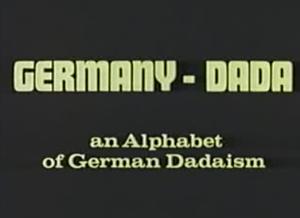
Germany-Dada
A reverse-alphabetical tour of Dada
a barrage of montage
Helmut Herbst
1969
UbuWeb Film
This documentary concerns the contributions of German artists to the Dadaist movement. Created in 1916, the organizers rejected previous convention and delighted in nihilistic satire in painting, sculpture and literature. Comparisons are made between the movement and the political and social upheaval at the time of the release of this feature (1969).
-
Dan Pavlides, All Movie Guide
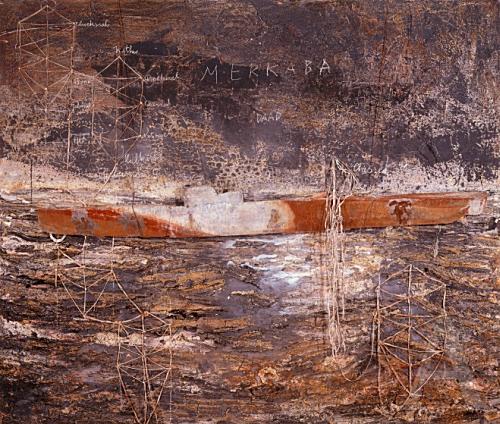
Merkaba
Anselm Kiefer
2006
_______________________
From “Zibaldone di pensieri”
Giacomo Leopardi
1798 - 1837
Translated from the Italian by W.S. Di Piero
(....)
The ancients assumed that the dead thought only about the things of this life, that they were always preoccupied remembering the facts of their lives, that they grieved or felt contented depending on what had hurt or pleased them here in life, and so as they saw it—and as Christians do not—this world is mankind’s home, that other world is exile.
- June 8, 1820
(....)
The past in memory, like the future in our imagination, is more beautiful than the present. Why? Because only the present has a true shape in our mind, it’s the only image of truth, and all truth is ugly.
-
August 18, 1821
Certain ideas, certain images of things, surpassingly vague, fantastical, chimerical, impossible, in poetry or in our imaginings—they bring peak pleasures, because they bring back our oldest memories, memories from childhood, when such ideas and images and beliefs were ordinary, commonplace. And the poets who most possess these (supremely poetical) visions are the ones we love most. Examine your own most poetical feelings and imaginings, those that most awe you, that take you out of yourself and the real world, and you will find that they and the pleasures they bring (at least after childhood) are mainly or wholly constructed of remembrances.
- May 21, 1826
...(more)
_______________________
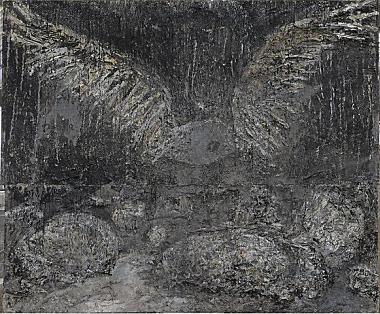
San Loreto
2009-2010
Next Year in Jerusalem
Anselm Kiefer
November 6 - December 18, 2010
Gagosian Gallery
Jim Johnson
_______________________
James Longenbach Interview on Stevens
big other
(....)I never find Stevens’s writing vague; it is always excruciatingly precise, and never more precise than when he is writing about the large generalities that are as much a part of our lives as begonias or pup tents. When Stevens uses words like “things,” “ideas,” or “sense,” you feel that he must use those words in precisely the way he uses them; that is, he is not relying on what you already know about those words—he is making you think hard about what those words might mean in particular contexts. In this way, he is making huge areas of apparently unpoetic language available to poetry, and only a few poets have done this because only a few poets employ generalized diction with such unerring precision. George Oppen is another.(....)
One person’s intense engagement with the most visceral aspects of life is inevitably going to look to another person like retreat or denial. Somebody like Jim Morrison represents one kind of lived intensity, but somebody like Wittgenstein represents another. I think Stevens had real doubts about the shape his life ultimately took; increasingly, his poems seem to me at times unbearably sad: “Her mind will never speak to me again.” * (A gorgeous pentameter!) But he also made something extraordinary from the limited means of himself, and that’s what we all do, or try to do. In some ways, Stevens lived with an intensity that terrifies me....(more)
a week's worth of posts celebrating Wallace Stevens at Big Other
_______________________
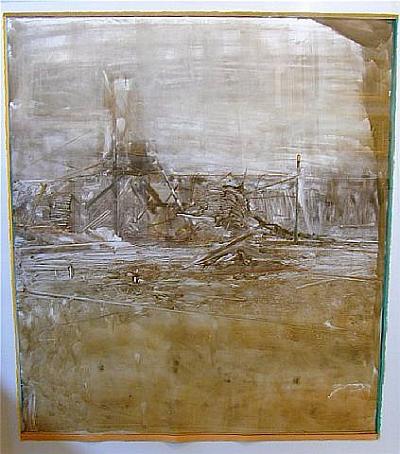
Pier Site #15
Nathan Oliveira
1983 _______________________
Searching for Smut
Hot on the trail of Anthony Comstock (1844-1915)
Amy Werbel
common-place
Those who adore archival research often imagine coming upon a find as glorious as the spectacles Nicholas Cage digs from Independence Hall in the movie National Treasure. The project that currently occupies my days is an inversion of this romantic ideal—think something more along the lines of National Trash. I too spend a great deal of time excavating with exhilaration, but instead of glorious and legendary relics of faux American history, I am searching for smut, digging for the materials that survived the attacks of legendary censor Anthony Comstock.
My interest in Comstock began during research on the artist Thomas Eakins. Diaries, letters, and board minutes from the late nineteenth-century art scene in Philadelphia and New York often referred off-handedly to Comstock as a threat to be avoided. Artists, trustees, and administrators altered exhibition and publication plans, debating how to avoid prosecution. Others held a "bring it on" attitude—many in the art world wanted to be the hero who defeated Comstock.
Those who nervously censored themselves were not wrong to take seriously the threat of prosecution. ... In his first empowered year alone, Comstock destroyed 13,000 pounds of books, 200,000 "bad pictures," and 14,000 pounds of stereotype plates for printing books— and sent forty perpetrators to jail for a combined twenty-seven years. ...(more)
_______________________
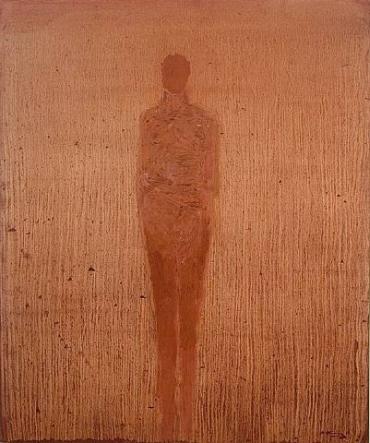
Standing Figure, Looking Forward
2010
Nathan Oliveira
(December 19, 1928 - November 13, 2010)
Nathan Oliveira R.I.P.
Vitro Nasu
_______________________
Spirit Duplication
Yara Flores
Sheets fresh from the ditto machine came doused with their intoxicating vehicle. They were limp and delicate and heady. One breathed deeply, and felt a lightness of the spirit. Like the page, one was softened to receive the purple words.
By contrast, these strange new handouts were made of static ash, of a nervous kind of soot. They felt brittle, dusty, lifeless. Without the penetrating aroma of naphtha, the dialogic doctrines felt strangely inert. Absent the lurid aniline purple—redolent of both Tyrian splendor and cruel wounds—the blackletter teachings took on a dour formality....(more)
CabinetLearning Issue 39 Fall 2010
_______________________
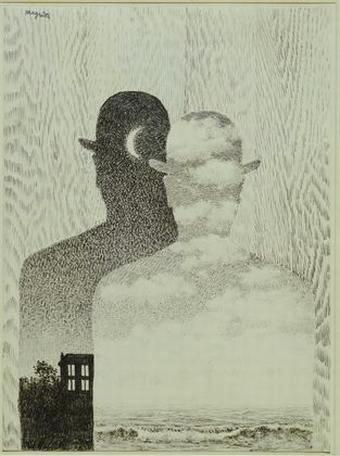
The Thought Which Sees
Pencil on paper
1965
Rene Magritte
b. Nov. 21, 1898
_______________________
... is it ironic at all that Europeans can take to the streets over the dismantling of social benefits but here in America, the corporate state can have its way just as long as no one feels us up at the airport?
- Michael Shaw
_______________________
I Feel You
Linh Dinh
It’s no big deal that they strap people onto boards, then pour water onto their faces, drowning them, more or less, in our name, but we don’t make a big fuss until they nudge our nuts.
It’s OK that they incinerate countless alien bodies, call it shock and awe (some), but we don’t go berserk until they palm our inner thighs.
Go ahead and commit countless crimes, profit and murder with our tax money, destroy nations, including this one, be imperial, kick ass without mercy, kill into eternity with regular troops, part-timers or mercenaries, but don’t mess with our junks!...(more)
_______________________
Rattle
Poetry for the 21st Century
back issues are available [pdf]
_______________________

Francesca Woodman
(1958 - 1981)
Victoria Miro Gallery
17 November 2010 - 22 January 2011
via Photographs Do Not Bend
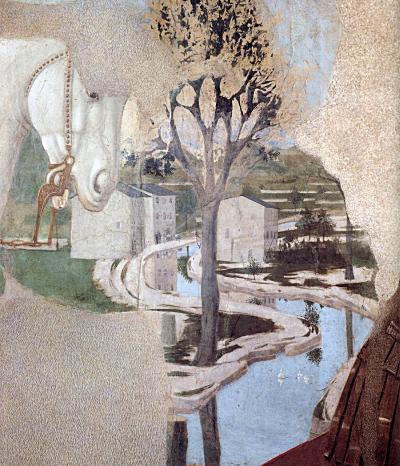
Constantine's Victory over Maxentius
(detail)
Piero della Francesca
Mirroring
Tom Clark Beyond the Pale
That on the surface of the water
one should see the sky
and on the surface of the wall
one should see the sky
reflected on the surface of the water
.....................................................
 Constantine's Victory over Maxentius
Fresco
1458
Piero della Francesca
ca.1422-1492
.....................................................
More explorations of mirrors by Tom Clark
Mirrors and Superstition
Soft Glass
Through the Looking-Glass: A Gallery of Mirrors
Theodor Adorno: Behind the Mirror
_______________________
... taxonomical drive is a component of archival culture, a culture where we try to control our reality by selecting specific features of it, labeling, and storing these features. It is as if we so fear the changes in which we situated, the rapid flows and movements online, the appearance and disappearance of sites and features, that we try to construct a knowable space or path. Here, at least, we know what's what.
It's odd, this taxonomical drive. In a just in time culture, a culture of preemption, where connectedness has taken the place of planning, the archive serves as a kind of fortress of planning, a backup plan, a reserve army of the not yet desired but could be. We store up for the future, presuming we can access these stores rather than just add to them.
We archive music, links, cites, photos, videos. We backup our hard drives--suppressing the suspicion that our future technologies won't be backwards compatible (our vinyl albums! our dissertations on floppy disks!). Archiving, or digital hoarding, is the background supposition of taxonomical drive. Saving displaces expenditure, putting it off into the future when we can desire again.
- Jodi Dean
_______________________

Multitasking with Clouds
2008
Svetlana Boym
The Off-Modern Mirror
Svetlana Boym
e-flux
(....)Instead of fast-changing prefixes—“post,” “anti,” “neo,” “trans,” and “sub”—that suggest an implacable movement forward, against or beyond, and try desperately to be “in,” I propose to go off: “off” as in “off kilter,” “off Broadway,” “off the map,” or “way off,” “off-brand,” “off the wall,” and occasionally “off-color.” “Off modern” is a detour into the unexplored potentials of the modern project. It recovers unforeseen pasts and ventures into the side alleys of modern history at the margins of error of major philosophical, economic, and technological narratives of modernization and progress. Critic and writer Viktor Shklovsky proposes the figure of the knight’s move in chess that follows “the tortured road of the brave,” preferring it to the master-slave dialectics of “dutiful pawns and kings.” Oblique, diagonal, and zigzag moves reveal the play of human freedom vis-ą-vis political teleologies and ideologies that follow suprahuman laws of the invisible hand of the market or of the march of progress. As we veer off the beaten track of dominant constructions of history, we have to proceed laterally, not literally, and discover the missed opportunities and roads not taken. These lie buried in modern memory like the routes of public transportation in the American landscape traversed by decaying highways and superhighways, surveyed by multitasking traffic controllers.
Off modern is not a lost “ism” from the ruined archive of the avant-garde. Neither is it merely a new brand in the fast-paced market of current artistic derivatives. Off modern is a contemporary worldview that took shape in the “zero” decade of the twenty-first century that allows us to recapture different, often eccentric aspects of earlier modernities, to “brush history against the grain”—to use Walter Benjamin’s expression—in order to understand the preposterous aspects of our present. In other words, off modern is not an “ism” but a prism of vision and a mode of acting and creating in the world that tries to remap the contemporary landscape filled with the ruins of spectacular real estate development and the construction sites of the newly rediscovered national heritage. The off-modern project is still off-brand; it is a performance-in-progress, a rehearsal of possible forms and common places. In this sense off modern is at once con-temporary and off-beat vis-ą-vis the present moment. It explores interstices, disjunctures, and gaps in the present in order to co-create the future....(more)
Notes for an Off-modern ManifestoSvetlana Boym
With his inimitable oblique lucidity Walter Benjamin wrote about the importance of short shadows. They are “no more than the sharp black edges at the feet of things, preparing to retreat silently, unnoticed , into their burrow, their secret being.” Short shadows speak of thresholds, warn us against being too short-sighted or too long-winged. When we get too close to things, disrespecting their short shadows, we risk to obliterate them, but if we make shadow too long we start to enjoy them for their own sake. Short shadows urge us to check the balance of nearness and distance, to trust neither those who speak of essences of things nor those who preach conspiratorial simulation. ...(more)
_______________________
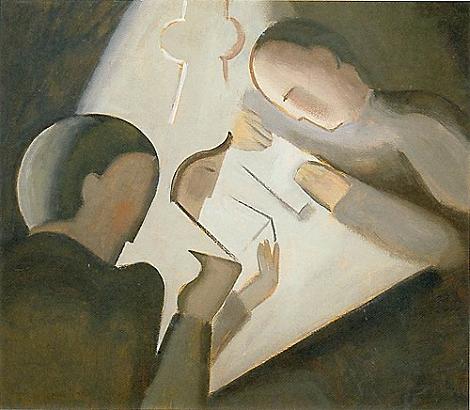
Readers under the Lamp
1913
Willi Baumeister
(1889-1955)
Weimar
Art and Modernity in Central Europe
_______________________
thegrowlingwolf Reveals the Source of His Bookish Nature
The Daily Growler
(....)... growing up like I did in the literary world of that world did affect me. Did mold me. Did set me straight on a course I have followed right up until this minute I am sitting at this Mac typing out this post for this damn blog whose space to me is as flat and treeless and wide-open as those plains and deserts from which I sprang. And that part of Texas produced some damn good writers: Larry McMurtry; Larry L. King who wrote "The Littliest Whorehouse in Texas"; John Graves (From a Limestone Ledge; Goodbye to a River); Elmer Kelton (The Time It Never Rained); Benjamin Capps (A Woman of the People); Len Hall (The Existentialist Cowboy blog--see the Blog List); and one of my heroes, the late J. Orlin Grabbe; Dr. Ben K. Green; my brother. Surely such a close-tie literary experience touched me, affected me, and surely that culture is present in my own writing--I mean growing up around books and in libraries and bookstores no matter the location leads to higher plains of both thinking and living....(more)
_______________________

American Faith
Christopher Churchill
via Joerg Colberg
_______________________
Political Theology: the Border in Question
Konturen
"Konturen opens with a series of essays on the law of the limit between politics and religion. The question of this law today is of a piece with the broader contemporary problem of the border, threshold, or determining framework, because the modern, Enlightenment privatization of religion repeats and reverses itself as the politicization of privatized religion, and as a consequence the modern subject finds itself in the paradoxical situation of a radical limitation (or finitude) doubled by an equally radical limitlessness (or infinite capacity). – The essays examine this situation in modernist, Baroque, and contemporary contexts. Tracy McNulty, Peter Hohendahl, and Leonard Feldman critically re-examine Carl Schmitt's anti-modern understanding of sovereignty as the foundational interruption of formal law. They question in various ways Schmitt's political-theological attack on the limit-function of law. Turning back to the Baroque threshold of modernity, where the explicit separation of church from state has yet to occur: David Yearsley unfolds the ambiguities of absolutist religious politics in J.S. Bach's secular and sacred music, while Steven Shankman finds an ethical interruption of political-theological totality in Monteverdi, Rembrandt, Shakespeare, and Couperin. Returning then to the religio-cultural politics of the present: Ülker Gökberk reads Orhan Pamuk on the dialectics of secularist modernity and politicized religion in contemporary Turkey, and Claudia Breger analyzes the "headscarf controversy" in order to problematize a number of German cultural and legal responses to the Turkish-German presence in the Federal Republic. Finally, Julia R. Lupton reviews Hannah Arendt's recently collected Jewish Writings, situating Arendt's own limitation in her incapacity to provide an adequate account of the sense of covenantal law in the Jewish context. In Arendt, too, the limit of secular modernity is determined through the delimitation of the law itself."
_______________________
Belated Happy 11th to Kevin Murphy (Ghost in the Machine) and Eliot Gelwan (Follow Me Here)
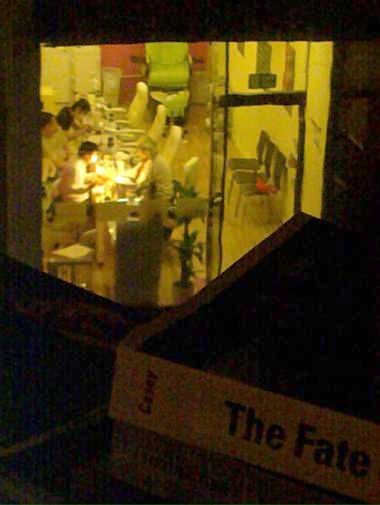
"And Suddenly the Memory Returns"
Dylan Trigg's new tublr page
_______________________
Lewis Carrol Thinks About Time
Steve Orlen
After a while, the days have a way of looking after themselves.
Things are idly turning under the left hand
While the right has been tooled
Into efficient turning toward goals. Time drifts.
Today is Monday, and tomorrow will be Monday, too.
Alice turns eleven. Yesterday she was seven,
Though what I remember of seven is a flock of photos
Which have waited for years to fly out of their box.
I can't sleep and I can't stay awake and the sun's coming up,
So I lift the lid of the box and watch the two worlds collide
Softly as dust particles in the first shaft of light.
I took these photographs!
One river is forever running down and the other upstream,
And the children in one boat are always waving hello,
And in the other, no one waves goodbye, no one.
Their faces are as stilled as photographs can make them.
The leisurely oars of the boatmen
Are taking them toward and away from that zone
Alice tumbled down, startled and bemused,
And I'm the Reverend Dodgson on the shores of Eden.
My hair is brown and curly. My eyes are blue.
From The Elephant's Child: New & Selected Poems, 1978-2005 (Ausable Press, 2006).
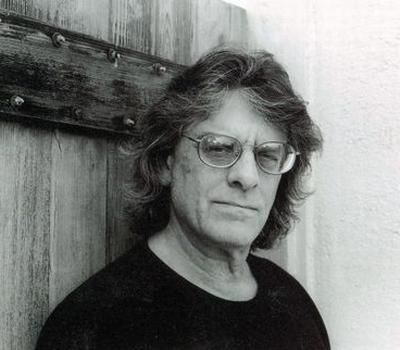
Steve Orlen
Remembering Steve Orlen (1942-2010)
Anna Clark
“Thank You, Steve Orlen”
H_NGM_N
This Particular Eternity
Steve Orlen google books
The Elephant's Child: New & Selected Poems, 1978-2005
Steve Orlen google books
_______________________
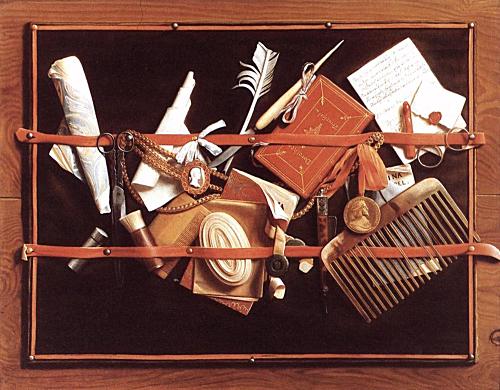
Still-life
1666-1668
Samuel van Hoogstraten
d. Oct. 19, 1678
_______________________
A Poetics of Radical Evil
Vanessa Place
lana turner
(Based on a talk given at the conference "Re-Imagining the Poetic-Critic" at the University of California, Santa Cruz, March 13, 2010)
(....)
... the question becomes whether proffering a multitude of meaning is a sufficiently ethical response. Whether proffering difference or différence is a sufficiently ethical response. Whether embedding the dialogic is a sufficiently ethical response. Whether reading itself is a sufficiently ethical response, whether there is a sufficiently ethical response. Let us assume, for purposes of this small argument, that Wittgenstein, Rancičre, Riefenstahl, etc, were right and there is an ethics for every aesthetics, and vice versa. And let us assume that all of the above are certainly (and serially) an ethical response, that is to say, one ethical response among possible ethical responses, or at least a slightly allergic reaction to a kind of cloistered criticism. However, each of these propositions lies within the realm of the problem posed by me, or, better still, a solution crafted by you. That is to say, the same thing, la mźme choose. In other words, a cornucopia of concepts spun, like clouds of sugar, around a single stick, is still dialogic—a conversation involving the conversional and the converted, the text that, like fairground food, is to be consumed, stuck alongside its consumers and consumings. Similarly, the collaborative/recombinant poetics redouble is a kind of call and response, also dialogic, also promising some consolatory relief, necessarily bas-, and the line walked by Derrida and Cixous is walked, as Johnny Cash said, “because you’re mine.”
That is to say, there must be an excavation, necessarily wrenching, in addition to a radical archiving, necessarily annoying. In other words, it is not enough to walk down the Department hall, or cross a theoretical divide that is not a divide, at least not in practice. There is no art without theory, no theory without art, there is the art of theory, and it is just as impure as any theory of art. It is time to rescind all licenses and make things truly free. Which, though it sounds like a sweet liberatory call, something that ought to be issued by one with some modicum of utopianism, or at least the itch for something better than this, is more a statement of fact, designed to prod us along into the future anterior, that conditional to-be. In other words, a violent and manacled responsibility, even duty. To what? To insist that poetry is what poetry isn’t....(more)
_______________________
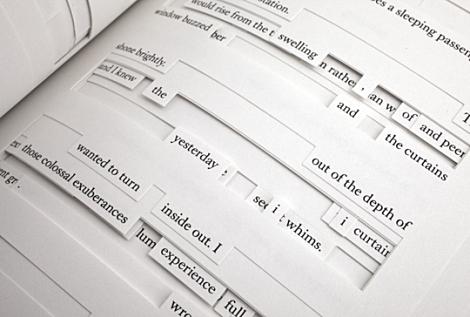
Tree of Codes
Jonathan Safran Foer
cut from The Street of Crocodiles by Bruno Schulz
via Vitro Nasu
_______________________
Two Poets Create Canada’s First Mechanical Poetry Journal
Maisonneuve
Toronto Poetry Vendors (TPV)
facebook
_______________________
History of Social Media
skloog infographic
via resource shelf
_______________________
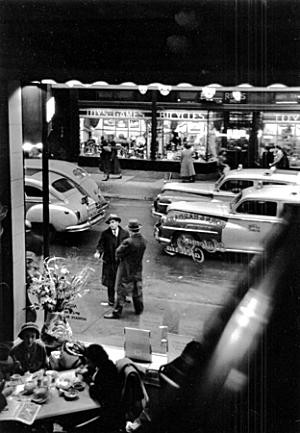
East 59th Street
from Automat Cafeteria,
NYC, 1/1950
David Vestal: Once Upon a Time in New York
Robert Mann Galler
via gmtPlus9 (-15)
_______________________
This is the News: A Beginner’s Guide to Democratic Mind Control
Darren Allen
Eat The State!
You may have noticed, while reading The Guardian, Le Monde or The New York Times, that no mention is ever made of the fundamental cause of conflict, the origin and nature of history, the best way to experience the centre of the universe while making love, how another person can really be known, what death has in common with asking a girl out, how to be free of worry, what to do if you accidentally find yourself trapped in a prison, school or office, why things don’t go haywire anymore, what the coming world catastrophe has in common with cellular biology, why a beautiful shoe will always be beautiful, how to enhance empathy, why we have placed birth and death in the hands of experts, what trees have in common with improvised theatre, why mystery and irrational generosity are illegal, the secret connection between modern art and corporate wealth-maximising and what all this has in common with formality, play, metaphor, the oldest meaning of the word god, the colour of Tuesday and why we smile when we meet a friend. Finally no mention is ever made of the reason why these, and thousands of other illuminating topics, never find their way into the pages of the news-media; why the reader has to look elsewhere for a beginner’s guide to democratic mind control…...(more)
_______________________

Black Sea of Concrete
photography by Rafal Milach
DeepSleep
Issue Five: The Sea
Deep Sleep is a quarterly online photography magazine founded by and featuring work from a small group of contributors who share the same office space in Shoreditch, East London.
via Photographs Do Not Bend
Rafal Milach blogs at Rafak Notes
_______________________
Ode to Coal
Steve Orlen
How modest it seems, how bashful,
This lump dug up from the bowels of the earth,
Still giving off its vegetable gases.
Is it waiting to become a diamond?
I'll bet Pablo Neruda, that great poet
Of the spiritual mundane,
Wrote an ode to coal,
Then burned it to ash in the fireplace.
Now he had two coals, and neither would warm him.
He took a long walk out and watched
The cabbages grow and the dogs give birth
And the flies gather and scatter and die.
Overhead he watched what he thought to be the gods
In their comings and goings, coupling and fighting,
Sitting around a table making plans.
Then he strolled about the countryside
Praising a universe in which nothing happens,
Nothing at all.
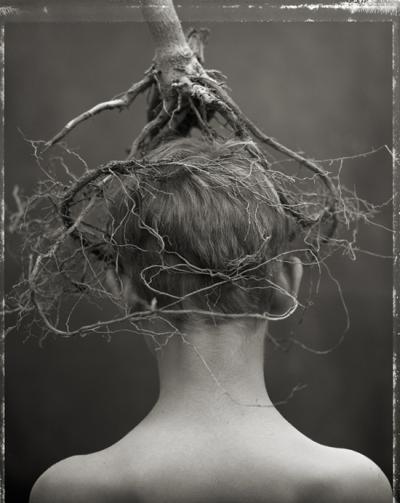
Charles Grogg
2010 Clarence John Laughlin Award
The Tethered World of Charles Grogg
John Wood
Charles Grogg’s photographs are hauntingly beautiful. And they are strange. But they are strange in a way that most “strange” photographs are not. There is no violence, no brutality, no shock, except the shock of authentic art, that shock that forces a viewer back again and again to look at them and keeps them as fresh on the one hundredth viewing as they were on the first. But they are, indeed, strange, strange in a way the work of absolutely no other photographer I have seen is strange. Strings and wire are often an integral part of a Grogg photograph, and though that is interesting and connected to their strangeness, it is not at the core of it. The strangeness lies in their tetherings....(more)
Clarence John Laughlin Award Finalists via James Luckett_______________________
Precipitate
journal of the new environmental imagination
Fall 2010: Volume 1, Issue 3
Life’s a Beach:
The Multi-Portrait Landscapes of Massimo Vitali
Daniel Keltner
(....)
As landscape, Vitali has not chosen to capture an idyllic Google image of the word “beach.” Instead, he makes us conscious that the reality of public beaches means crowds, beach towels, and hotel chains as much as sand, sun, and sea. Masses of individuals are not the visual pollution of contemporary beaches; they are an inseparable element of the beach environment, whether we are thrilled about that fact or not. Even for those with the money to afford a more exotic experience, the contrived authenticity that goes into many private locales makes the deeming of such beaches “natural” akin to deeming a public park “the woods.” Vitali’s work refuses to capture the idea of the beach and instead presents its current state, packed with all the reality of today’s social concerns: overpopulation, the glorification of the banal, and the contradictory desires for independence and a cultural identity....(more)
.....................................................
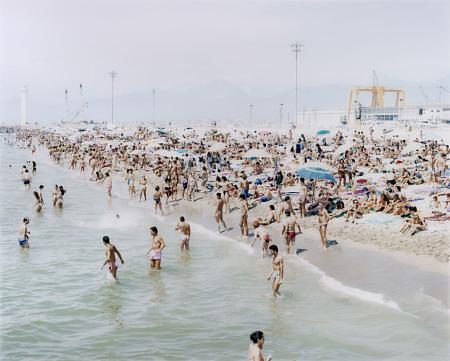
Massimo Vitali
.....................................................
A Conversation with Massimo Vitali
Conscientious
_______________________
Lana Turner: A Journal of Poetry and Opinion - #3
Mano
Forrest Gander
Lana Turner
for Rick Hirsch & Michael Roger
In (microscopic) pocks of a
palmsize granite stone
traces of green corn purslane
(snakefat) and pińon fuse
with smeared roots
and beeweed pollen
(ochredust) which drifts
summerlong into the
scalp of a woman kneeling
(intent) and bent over a
lightbitten stone basin
her muscles flexed
trapezius to
triceps the wrist (thick)
working a short
orbital swipe hand-
stone taking
the curve
of palm (cupped)
and her torso’s weight
fallingthrough while
swallows dive and
veer ...
...(more)
_______________________
Jonathan Galassi on Translating Giacomo Leopardi
As this glimpse at the proofs of my versions of Leopardi’s Canti suggests, a translation, like an original poem, is never finished, only abandoned. And that remains true even after the book is published—I’ve already started collected “improvements” for a future printing.
Canti
Poems / A Bilingual Edition
Giacomo Leopardi; Translated from the Italian and annotated by Jonathan Galassi
_______________________
Translation in Practice: A Symposium
edited by Gill Paul
Dalkey Archive Press
Essentially this is a very practical handbook. Practically, it may well become an essential one. As well as answering a number of obvious—and a few recondite—queries, it provides welcome doses of optimism and encouragement. Yes, editors and even authors have been known to work happily with their translators. A very few writers even want to share credits and profits more generously than the terms stipulated by the Translators’ Association model contract (a basic working tool of any literary translator worth their salt). Portu- guese Nobel Prizewinner Jose Saramago is one such example, who kindly insists: ‘Lamentably, I can only write books in Portuguese. It is my translators on whom I rely to render my books universal.’
Saramago may be a delight for a translator to work with; other authors may not, or they may be long since departed. Enter the editor, a translator’s ‘first reader,’ bar the customary recourse to spouses and pets. In order not to feel neglected or competed with, a transla- tor needs to feel that her approach—if possible, even some elemen- tary problems—are understood and can be addressed. The narrative voice or voices are all: achieving their best possible expression is the over-riding task of editor and translator working together.
Thus far, this preface has been composed from the standpoint with which my work has made me most familiar. Read on and this hand- book adopts a 360-degree approach, involving both publishers and the editors themselves. Already, it is set to become a staple for pub- lishing courses and diplomas in tertiary education, for professional associations (such as The Society for Editors and Proofreaders), for workshops run by any of these, and for the many individuals em- ployed across the field of literary translation.
free pdf from Dalkey Archive via languagehat
_______________________
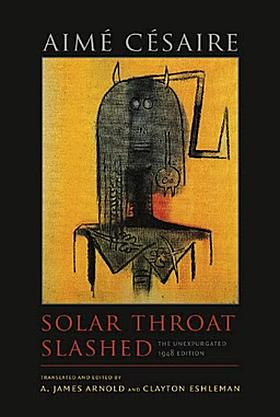
Solar Throat Slashed is Aimé Césaire’s most fulgurating collection of poetry. Animistically dense, charged with eroticism and blasphemy, and imbued with African and Vodun spirituality, this book takes the French surrealist adventure to new heights and depths. A Césaire poem is a crisscrossing intersection in which metaphoric traceries create historically-aware nexuses of thought and experience, jagged solidarity, apocalyptic surgery, and solar dynamite.
-
Clayton Eshleman
Five PoemsAimé Césaire from
Solar Throat SlashedSoleil cou coupé
[the unexpurgated 1948 edition]
translated by A. James Arnold and Clayton Eshleman (Wesleyan University Press, [scheduled for May 2011])
Antipodal Dwelling
Crucible in which is born the world hair humus of the first earth
hair first worry stone
when the rain shall be the thread with which bit by bit the world undoes itself
when the sun shall be a spider in which to lose ourselves one by one
when the sea shall be an octopus to spit our hopes at us in our faces
when the moon shall uncoil and will unroll for us its long serpent body
when the volcano shall shake its wrinkled pachyderm body
when the wind shall no longer blow because we have forgotten to strike the wind stones
when the stones shall cease to speak for having preached too much in the desert
(entangling my veins an entire forest down to its lowest branches
entangling my veins completely the water and the regime of faithful fires
entangling that from the bottom shall dash waterlilies in my face and my blood
of redemption and my shoulders slipping better than any knots
entangling
a drop of water in the precious alembic of water tables that shall go to the window and
cry out in Esperanto that the weather is fine poorly heard by the volutes scored by our bitterest spit)
a drop of fire in the throat without risk of wind
firefly and water I shall assemble myself in little drops of water of fire too beautiful for any other architect
...(more)
courtesy of the glade of theoric ornithic hermetica
_______________________
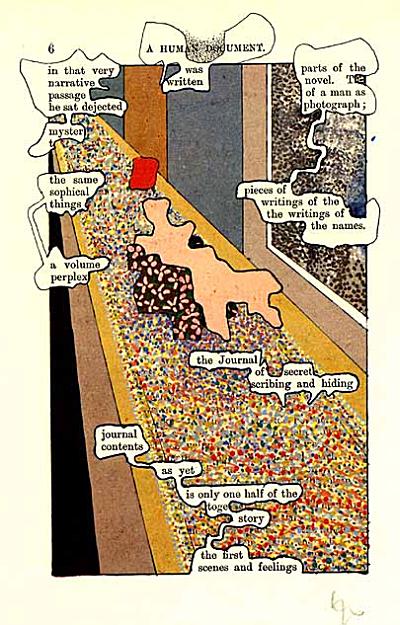
A HUMUMENT
Tom Phillips
a treated book based on the Victorian novel
'A Human Document' by W.H. Mallock
A Humument becomes an App for the iPad via idiotic hat
_______________________
and/or
word - image - provocation
Volume 1
_______________________
BlazeVOX2kX Fall 2010
An online journal of voice
Ezra Pound at 125: Either move or be moved
Welcome to the Fall issue of BlazeVOX 2kX. Once again we have a
wonderful issue of wild fictions, poetry, and visual poetry. We have 86
authors presenting a varied array of writings from authors around the
world, from varied backgrounds and whose ages range from 17 to 82.
So hop in and be moved by these works!
Either move or be moved is a favorite quote of mine from Ezra Pound. This
simple phrase resounds in my mind of all the possibilities that can be
open by the act of using ones own potential. In this case writing, but it
is applicable to all the arts. I myself say, be relevant. We chose Ezra
Pound as our Editor in Chief as he is still quite a relevant figure for
today. We cannot forgive his politics but on his Quasquicentennial
anniversary, we say hurray!
_______________________
Elective Affinities: Rachel Blau DuPlessis
So what about my own praxis? Drafts is a long poem, in autonomous canto like sections, with a projected total of 114 separate but related works; it was begun in 1986. Now it is 2010, and I have eight more poems to write. The poem’s activities are ongoing, and it has kept going so long as it is interesting to me. There is no narrative, no plot outline, and in terms of seriality (building a forensic argument inferentially, by leaps and movement)—the poem works only in the most general way. It is not about a personal story, or an expressivist narrative of realizations. It’s a series of explorations into the world and into it. The scale change from the little dot of “I” to the magnitude of “it” is what interests me. Sheer amazement and political mourning are two of the most salient aspects of the work.(....)
I have “an edgy attraction to history’s material residues”—this said by Walter Benjamin in his essay “Edward Fuchs: The Collector as Historian.” I value the long poem, because its scope, its scale, its flexibility, and its ability to use a variety of genres all open the way to poetic/ poethical and cultural commentary. (The word “poethical” is a suggestive and helpful term from Joan Retallack.) Book-length works and trans-book works, life-poems or endless poems tend to create the power of their own worlds by sheer extent, generating a considerable space for working out assumptions about social and cultural values. Accumulation, pensive commentary, ethical commitments, decided poetic attentiveness, textual exactness and social pilgrimage are some of the advantages of Drafts for their author.
My use of Drafts as an overarching title for this project suggests that all the poems, as well as the whole structure, are only drafts of something beyond themselves, something that is palpable but unattainable. The work is compelled by the illusion that the individual poems aspire to one mysterious and unreachable poem, or some multiplex structure in another dimension, that all the individual poems are versions of something that can never really be completed, never fully be found, never totally be articulated. This feeling of the unknowable and the unreachable is very satisfying to me, for it expresses the messianic deferral characterizing the intellectual and ethical conditions of my calling as a poet....(more)
_______________________
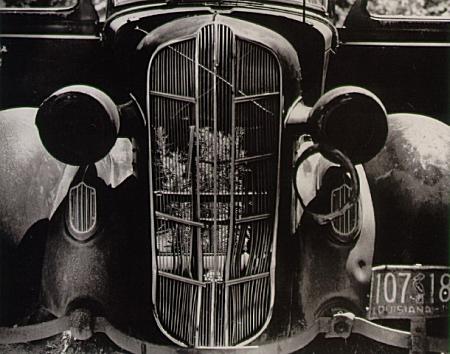
The Imprisoned Landscape
1954
Clarence John Laughlin
1905 - 1985
1 2
_______________________
5 poems
Aimé Césaire
Translated from the French by A. James Arnold and Clayton Eshleman
lana turner
Torture
All those whose hearts are an inkblot in a child’s copybook all those whose word is an embrace broken in a
final effort of terrestrial gigantism
either manifesting on their hands a moon scored by the friction of glacial moraines or showing in their gait
an evil serpent that by right of initiation crosses a zebra of circles and ellipses
All those who know how to show on imperial purple great blots of dark sperm accompanied by a diagram
of their fall
all those whose fingers are an unprecedented sumptuousness of butterflies curved according to the earth’s
axis
O all those whose gaze is a carousel of birds born of a superhuman balance of sponges and of fragments
from a galaxy extinguished beneath a small railway station’s heel.
...(more)
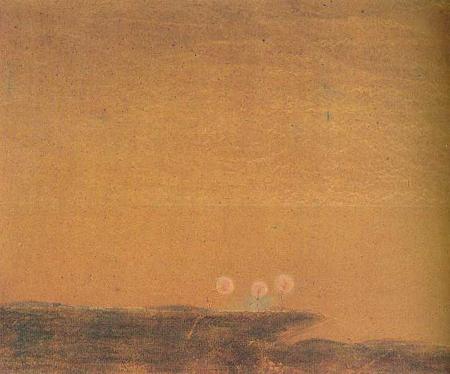
Silence
1905
Mikalojus Konstantinas Ciurlionis
1875-1911
The art of Mikalojus Konstantinas Ciurlionis
{ feuilleton }
_______________________
Diminished Use Value / Disturbed Surface
Nico Vassilakis
staring poetics
(....)
How far back does one have to go?
Crashing under the weight of its own greed and vanity.
It is critical that you exist.
This. Written hundreds of times. Like this.
Just slightly on the left side of the center of the page.
You see, you are just no good.
These other things are mostly made up of people like you.
Second-guessing as you go.
The more you seek the more invisible it becomes.
That being the product is less important than the marketing of that product.
Can that be something?
Turning your fucked up face toward and then away from the business end of popular culture.
I found my clown center.
By useful I mean your sensibilities are aroused and intentions are engaged.
It’s not wrong to need a break.
There’s an easy brown I’m thinking of for this.
This is you looking at a poster.
No satellite connection.
...(more)
via Nick Piombino
_______________________
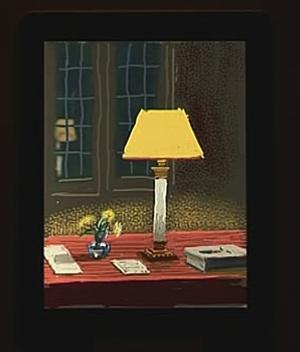
David Hockney: Fleurs fraīches
Drawings on iPhone and iPad
20th of Oct. 2010 - 30th of Jan. 2011
The Pierre Bergé - Yves Saint Laurent Foundation "Hockney began working with the iPhone in 2008, and his subsequent discovery of the "Brushes" application as well as other "apps" has enabled him to produce works of extraordinary variety. Since that time, the artist has created hundreds of images, ranging in subject matter from plants and self-portraits to landscapes and still lives. However, it is the artist's vibrant depiction of arrangements of cut flowers and plants on view in this exhibition, which have become the subject of Hockney's most extensive exploration into the technical possibilities of the medium. Hockney uses his thumbs and fingers to create full-color images directly on the device's screen, modifying the color's hue and layering brushstrokes of various widths and opacities. The exhibition will feature an animation of one or more of Hockney's "fresh flowers," enabling visitors to witness the creation of the work from start to finish. In addition, an 8-10 minutes triptych slide show installation directed by the artist will be displayed on a large floating projection screen."
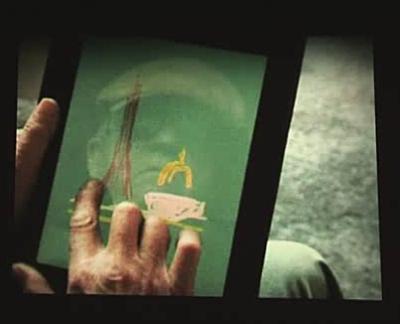
video
_______________________
Speedism, boxism and markism: Three ideologies of the Internet
Jan Michael Nolin
First Monday
_______________________
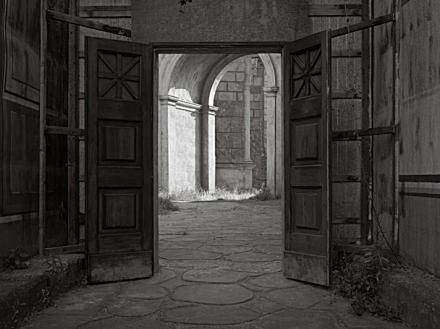
The Eternal Stage Set
Cinecittą studios
Rome
Gregory Crewdson
vanity fair
_______________________
The Empire’s New Clothes
Paul Street
interviewed by Alex Doherty
A progressive mind is a terrible thing to waste. Just what sort of authoritarian, democracy-disabling dependency is it that makes some Americans capable of hating terrible policies only if they are being carried out by one brand of politician and incapable of doing the same when the same policies – or much the same, slightly modulated – are conducted by a different brand of politician beholden to the same dominant social hierarchies and doctrines as the one you don’t like?
The brand change, intimately related to the historic color change in the White House, is itself part of the narcotic mix. As Chris Hedges noted last year in a telling comment on a political culture that has long been deeply intertwined with the deceptive culture of advertising:
“Barack Obama is a brand. And the Obama brand is designed to make us feel good about our government while corporate overlords loot the Treasury, our elected officials continue to have their palms greased by armies of corporate lobbyists, our corporate media diverts us with gossip and trivia and our imperial wars expand in the Middle East. Brand Obama is about being happy consumers. We are entertained. We feel hopeful. We like our president. We believe he is like us. But like all branded products spun out from the manipulative world of corporate advertising, we are being duped into doing and supporting a lot of things that are not in our interest.”
“…President Obama does one thing and Brand Obama gets you to believe another. This is the essence of successful advertising.”
“Like Bush’s America,” the wonderful left writer and filmmaker John Pilger noted last year, “Obama’s America is run by some very dangerous people.”...(more)
_______________________
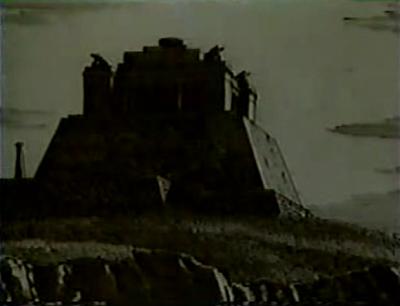
Brutality in Stone; Yesterday Goes on for Ever
Alexander Kluge
(1960)
Alexander Kluge - 8 films
UbuWeb
_______________________
How Characters Became the Masters and the Author Their Apprentice
José Saramago
Translated by Tim Crosfield and Fernando Rodrigues
Nobel Lecture, December 7, 1998
Blind. The apprentice thought, "we are blind", and he sat down and wrote Blindness to remind those who might read it that we pervert reason when we humiliate life, that human dignity is insulted every day by the powerful of our world, that the universal lie has replaced the plural truths, that man stopped respecting himself when he lost the respect due to his fellow-creatures. Then the apprentice, as if trying to exorcise the monsters generated by the blindness of reason, started writing the simplest of all stories: one person is looking for another, because he has realised that life has nothing more important to demand from a human being. The book is called All the Names. Unwritten, all our names are there. The names of the living and the names of the dead.
I conclude. The voice that read these pages wished to be the echo of the conjoined voices of my characters. I don't have, as it were, more voice than the voices they had. Forgive me if what has seemed little to you, to me is all....(more)
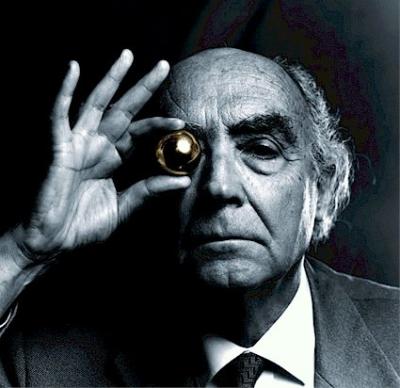
José Saramago
b. 16 Nov. 1922
Reinventing democracy
José Saramago Translated by Barry Smerin Le Monde diplomatique
August 2004
Experience confirms that political democracy is of little use unless it is based on economic and cultural democracy. Yet economic democracy is now a despised idea, replaced by an obscenely triumphant cult of the market. Cultural democracy has been replaced by the no less obscene idea of industrialised mass culture, a pseudo-melting pot that conceals the predominance of one culture over all others.(....)
"Western democracy" has entered a phase of retrograde transformation that it cannot halt and will foreseeably bring about its negation. No one need take responsibility for killing it: it is committing suicide. What is to be done? Should we attempt to reform it? But we know that reform, as Giuseppe Tomasi di Lampedusa wrote in The Leopard (4), means changing everything so that it can stay the same. Renew it? Which period of history would be a viable basis for rebuilding, in modern materials, a system on the way to perdition? Ancient Greece? The merchant republics of the Middle Ages? English 17th-century liberalism? The French Age of Enlightenment? A pointless question.
So what should we do? Let us stop considering democracy as an immutable value. In a world in which everything can be questioned, only democracy remains taboo. António de Oliveira Salazar (1889-1970), the dictator who governed Portugal for more than 40 years, said: "We do not question God, fatherland or family." Today, we happily question God and fatherland, and the only reason that we do not question the family is that it is questioning itself. Only democracy is not questioned. We must question it at every opportunity. Unless we discover a way to re-invent it, we shall lose not only democracy but all hope of seeing human rights respected on earth some day. That would be the greatest failure of our time, a betrayal that would mark humanity for ever....(more)
_______________________
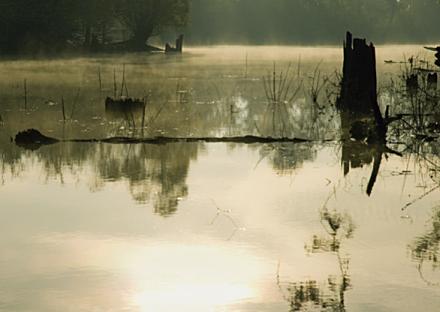
Shifting Lands
Michel Varisco
_______________________
Black Water
Spurious
Waterloo Bridge. The mighty Thames.
Bridges are always offensive to the gods, we've read. They're the symbol of hubris, of over-striving. Who would think themselves stronger than the currents and tides?
The gods of the river need to be appeased. The Greeks used to cut the throats of animal suspended above the river. They used to throw live horses into the waters, or sacrifice them on the banks. Later, they used to build shrines and chapels on bridges, and priests would spend their whole lives there, accepting offerings from passers-by.
And weren't there more ancient traditions of sacrificing a child to appease the river? W. shudders. The Thames is full of all kinds of offerings: jewellery and figurines, spear-heads and battle axes, mutilated effigies of the saints, crucifixes with the head of Christ removed perfectly preserved in the mud and silt ...
Should we throw ourselves in?...(more)
|
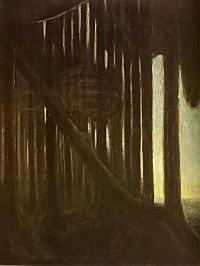
 Janus Head
Janus Head

 The Age of Briggs & Stratton
The Age of Briggs & Stratton
















































